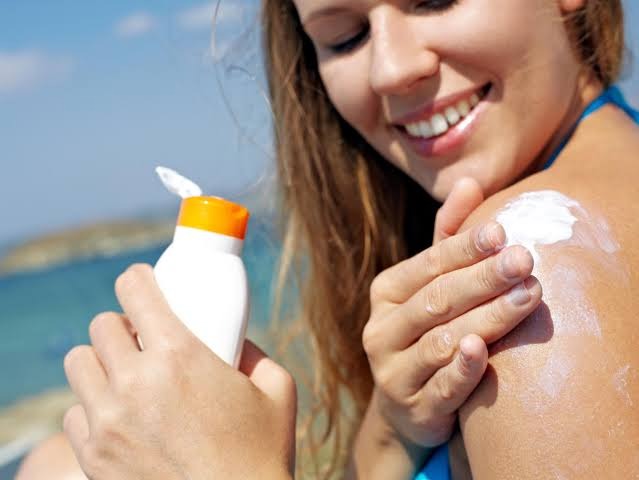There is no reason to abandon sunscreen during the monsoon season. So, for the sake of your skin’s health, remember to apply it throughout the season.
You are still exposed to the sun indirectly. With a dark cloudy sky and the sun barely visible during the monsoon season, you could just skip sunscreen from your daily beauty routine, right? Rain and cloudy skies aren’t an excuse to forego sunscreen. In fact, sunscreen is even more important during monsoon season.

As a result, regardless of whether it’s raining heavily outside or the season, applying sunscreen should be the most important task in your beauty routine.
Sunscreen shields your skin from harmful rays. When your skin is exposed to UV rays for an extended period of time, it darkens due to the formation of melanin, resulting in sunburn and premature ageing because it damages the skin fibre. Aside from that, it causes freckles and melanoma, a type of skin cancer.

We agree that because it is cloudy during the rainy season, we are not directly exposed to the sun’s rays. However, it is important to note that UV rays emitted by clouds are even more dangerous and concentrated because 95 percent of rays that reach the ground convert to UVA rays, which penetrate deep into the skin and require protection.

Here are some things to keep in mind when applying sunscreen during the monsoon:
- UV ray exposure is greatest during the day, especially between 11 a.m. and 4 p.m.
- Sunscreen should be applied within the house because rays penetrate through the windows.
- Apply sunscreen 30 minutes before going out in the sun to allow it to fully absorb into your skin.
- It is critical to reapply sunscreen every 2 hours, especially if you are exercising, swimming, or sweating.
- When purchasing sunscreen, make sure it has an SPF of 30 or higher and protects against both UVA and UVB rays.
- During the rainy season, humidity causes even normal skin to become oily and greasy, so use a gel-based sunscreen.
- Use water-resistant sunscreen to prevent it from being washed away in the rain.
- Apply sunscreen to your entire body, not just your face, because UV rays penetrate even when you’re wearing clothes.
- Know your skin type before selecting a sunscreen. Though water-based sunscreen is best for all skin types, seek expert advice from a dermatologist to determine the best type of sunscreen for you.
